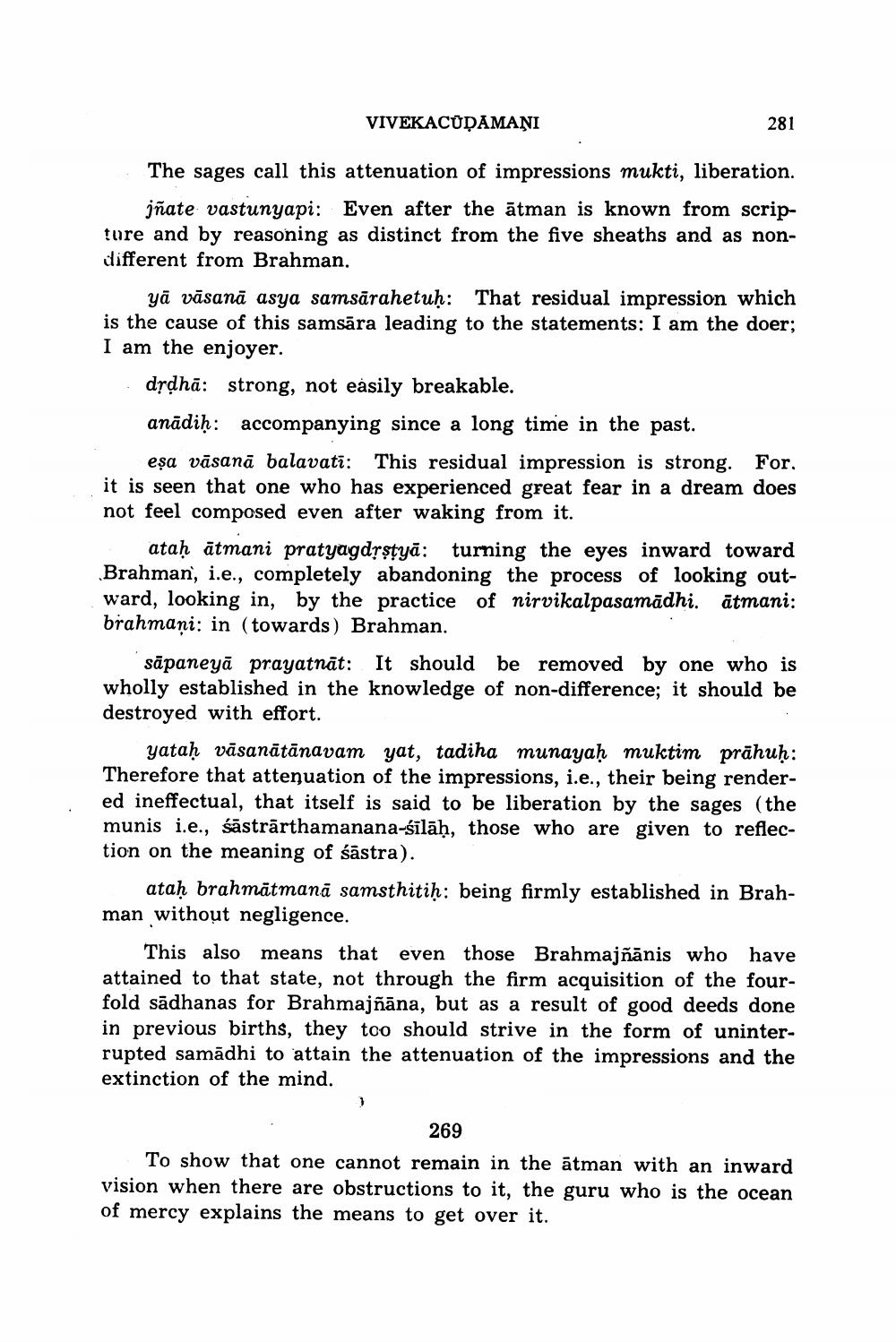________________
VIVEKACUDAMANI
281
The sages call this attenuation of impressions mukti, liberation.
jñate vastunyapi: Even after the atman is known from scripture and by reasoning as distinct from the five sheaths and as nondifferent from Brahman.
yā vāsanā asya samsarahetuḥ: That residual impression which is the cause of this samsara leading to the statements: I am the doer; I am the enjoyer.
drḍhā: strong, not easily breakable.
anādiḥ: accompanying since a long time in the past.
For.
eṣa vāsanā balavati: This residual impression is strong. it is seen that one who has experienced great fear in a dream does not feel composed even after waking from it.
ataḥ ātmani pratyagdṛṣṭya: turning the eyes inward toward Brahman, i.e., completely abandoning the process of looking outward, looking in, by the practice of nirvikalpasamādhi. ātmani: brahmani: in (towards) Brahman.
sāpaneyā prayatnat: It should be removed by one who is wholly established in the knowledge of non-difference; it should be destroyed with effort.
yataḥ vāsanātānavam yat, tadiha munayaḥ muktim prāhuḥ: Therefore that attenuation of the impressions, i.e., their being rendered ineffectual, that itself is said to be liberation by the sages (the munis i.e., śāstrārthamanana-śīlāḥ, those who are given to reflection on the meaning of sastra).
ataḥ brahmātmanā samsthitiḥ: being firmly established in Brahman without negligence.
1
This also means that even those Brahmajñānis who have attained to that state, not through the firm acquisition of the fourfold sadhanas for Brahmajñāna, but as a result of good deeds done in previous births, they too should strive in the form of uninterrupted samādhi to attain the attenuation of the impressions and the extinction of the mind.
269
To show that one cannot remain in the atman with an inward vision when there are obstructions to it, the guru who is the ocean of mercy explains the means to get over it.




